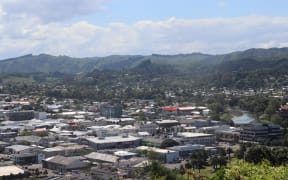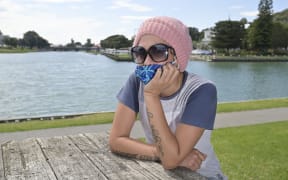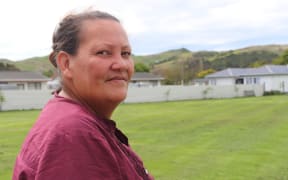Beneath the veneer of the quiet, remote Tokomaru Bay settlement lies the story of locked-up land that mana whenua have little to no control over. One woman is on a mission to rewrite century-old legislation, and return the power to her people.
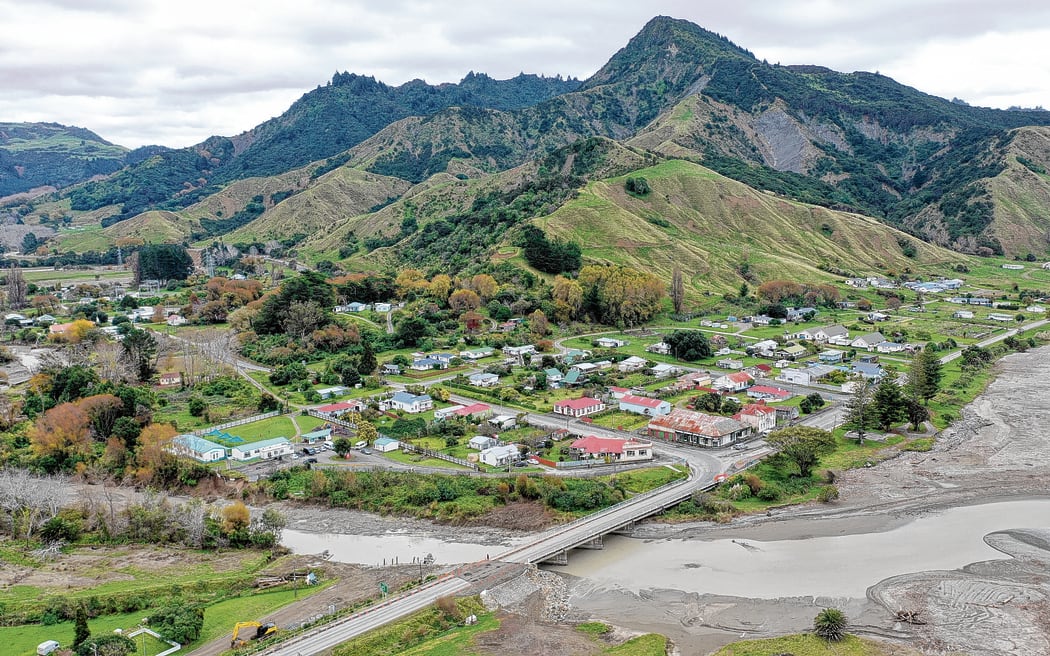
Tokomaru Bay is a small town of about 450 people, located 90km north of Gisborne. Photo: Local Democracy Reporting/ Gisorne Herald - Ben Cowper
The land, which is leased out to a number of groups, provides a paltry income for its beneficiaries and is subject to legislation which severely limits the owners' options.
In Tokomaru Bay, about 90km north of Gisborne, Tina Olsen-Ratana is one of the beneficial owners of Māori Reserve land known as the Tuatini Township Blocks.
The three blocks contain a total of 13 sections, home to old shops, accommodation, and residential property.

But Olsen-Ratana says the group has no control over who leases it, how long it is leased for, or even what kind of businesses or buildings occupy the space.
At the centre of the issue is an arrangement called perpetual leasing, which dates back to legislation at the turn of the last century.
Under the current rules, which were the result of a government error, the leases are set for 999 years, and are perpetually renewable.
"We've got whānau who are homeless, and yet, they've got land. How is that possible?" Olsen-Ratana asks.
"Homeless. And we can't even say 'well, let's put some housing up to house our own'."
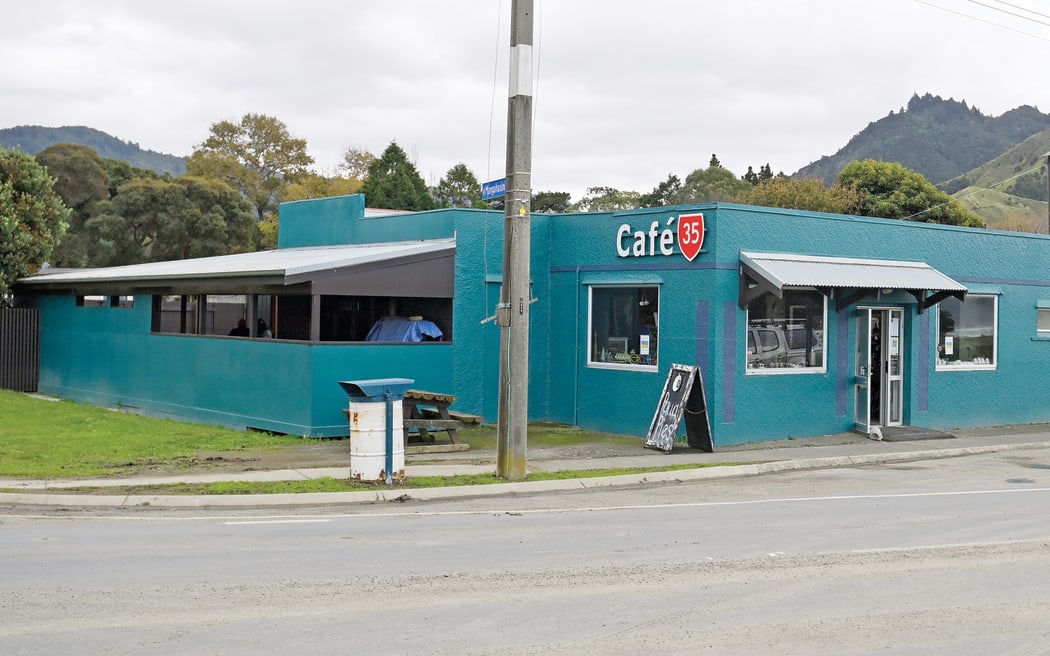
This recently renovated Tokomaru Bay cafe sits on a 2378 square metre property, with the land leased at perpetuity for $5,500 a year. Photo:
The build-up
The history of perpetual leases dates back 100 years, and is steeped in colonisation, a Māori land expert says.
In the 1920s, the East Coast was experiencing burgeoning economic growth. The freezing works, wharf, wool store, and agricultural sector were all thriving.
But beneath the surface of profit and opportunity, a storm was brewing.
Tamaki Legal managing director Darrell Naden has been working in Treaty claims since 1998, and has a keen understanding of Māori land law. The East Coast was unique at that time, he said, because colonisation had been slow to tighten its grip.
Government had other plans, however.
Under Crown jurisdiction, the Tuatini Native Township was set up at Tokomaru Bay under the Native Townships Act 1895 with the purpose of establishing a settlement for the settlers, and providing them with property.
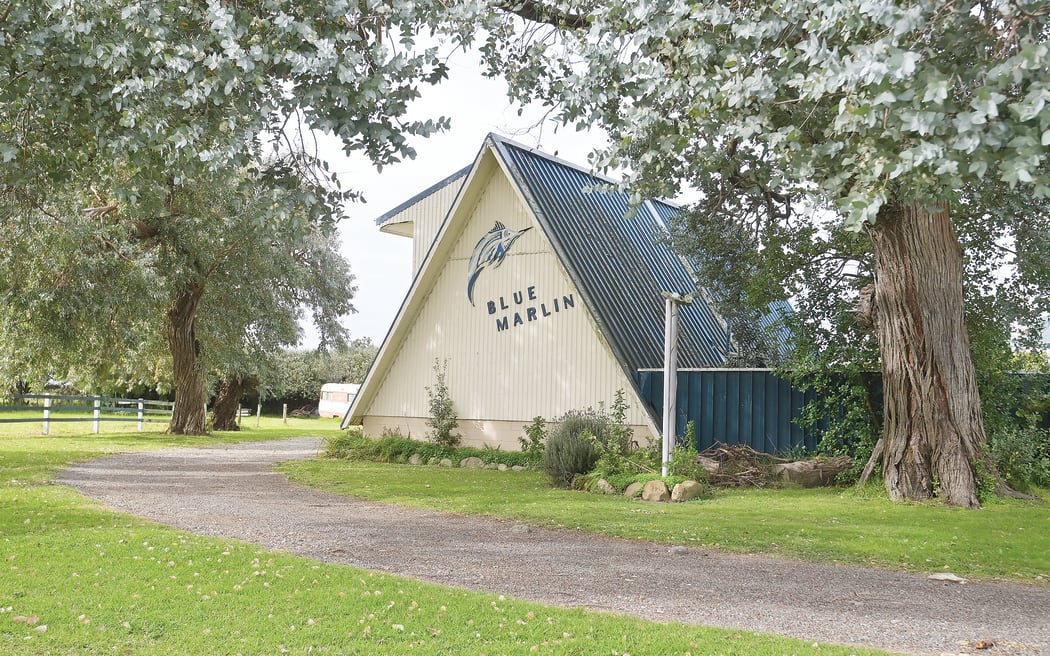
The Blue Marlin motel sits on land that is leased for $3,750 a year. The money makes its way to the beneficial owners by way of Te Tumu Paeroa, which takes a cut. Photo: Supplied /Local Democracy Reporting / Gisborne Herald - Liam Clayton
The land was owned by Māori, but the townships were not for Māori, Naden explained.
"Native townships were established in areas where colonisation had been slow, so that there could be a quickening of that process, and with that, the alienation of Māori land as the result of an increased settler population in the area."
Then, in the 1920s, a costly mistake virtually locked Māori out of that land altogether.
Things fall apart
Under the Native Townships Act 1895, the terms of lease were set at 21 years, with the right to elect a further 21-year renewal.
But when the first round of leases came up for renewal in the 1920s, leaseholders exerted pressure to be given a perpetual right of renewal at the time of expiry.
Arguing that longer leases with compensation for improvements would encourage development in the towns, they ultimately got their way, albeit through a clerical error.
At some time after 1910, a series of leases were surrendered ahead of time, and accepted by the Māori Land Board which then issued new leases for those sections.
However, the new leases were issued in error under the Public Bodies Leases Act 1908, including the conditions which remain a thorn in the side of Māori land owners in Tokomaru Bay: they were perpetually renewable, they had a fixed rent of 5 percent of the unimproved value for rural land (4 percent for urban land), and the rent was fixed for 21-year periods.
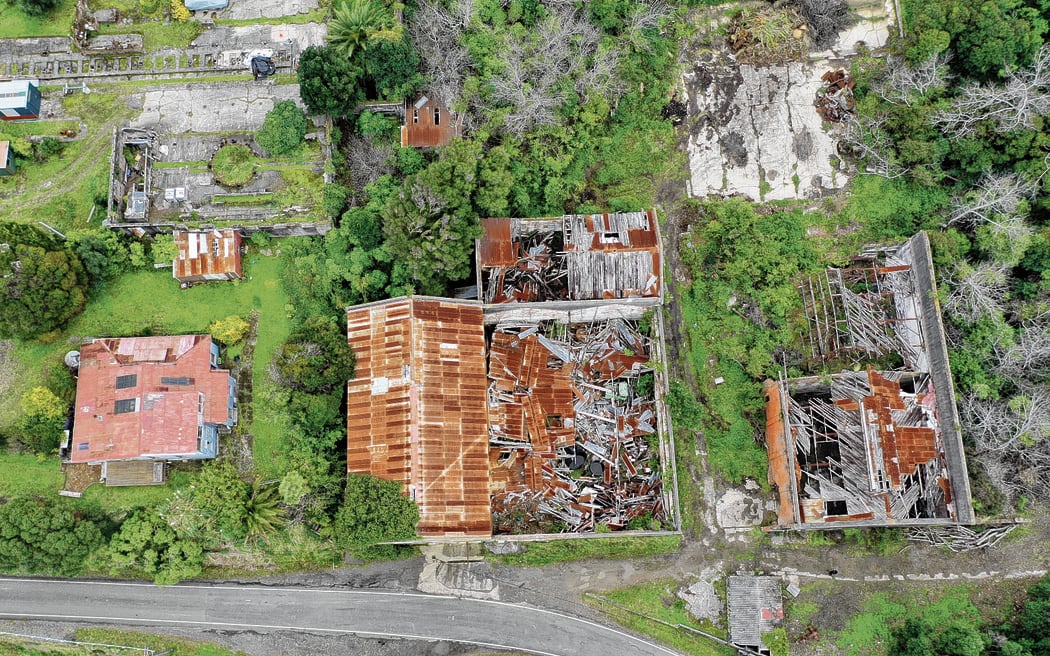
The eroding wool store in Tokomaru Bay was once part of the bustling industry in the region. Photo: Supplied/ LDR/ Gisborne Herald - Ben Cowper
In 1927, the government's Native Department revealed how the mistake occurred. It had forwarded a form including the perpetual lease terms which was used on several occasions before the mistake was noticed.
This information, drawn from a research report that was prepared for the Waitangi Tribunal's East Coast inquiry, concludes with a poignant point - when the townships were established in the late 1890s, the owners had no expectation that their land would be leased in perpetuity.
"The lessees have got the lessor over a barrel. And so for the last 100 odd years, the Tuatini lessors have not only lost the use of their land, they're not able to charge market rent," Naden said.
"What a disaster for these landowners … faced with leases that are 999 years long."
A plea to the minister
Asked what needed to happen for Olsen-Ratana and the other owners to reclaim their land, Naden said legislative change was essential.
But he was quick to point out the Crown would be reluctant, because such a move could open the door for lessees to demand compensation for lost earnings over the next 900 years.
Regardless, Tina Olsen-Ratana has enlisted the help of McCaw Lewis Lawyers to lobby the government for change.
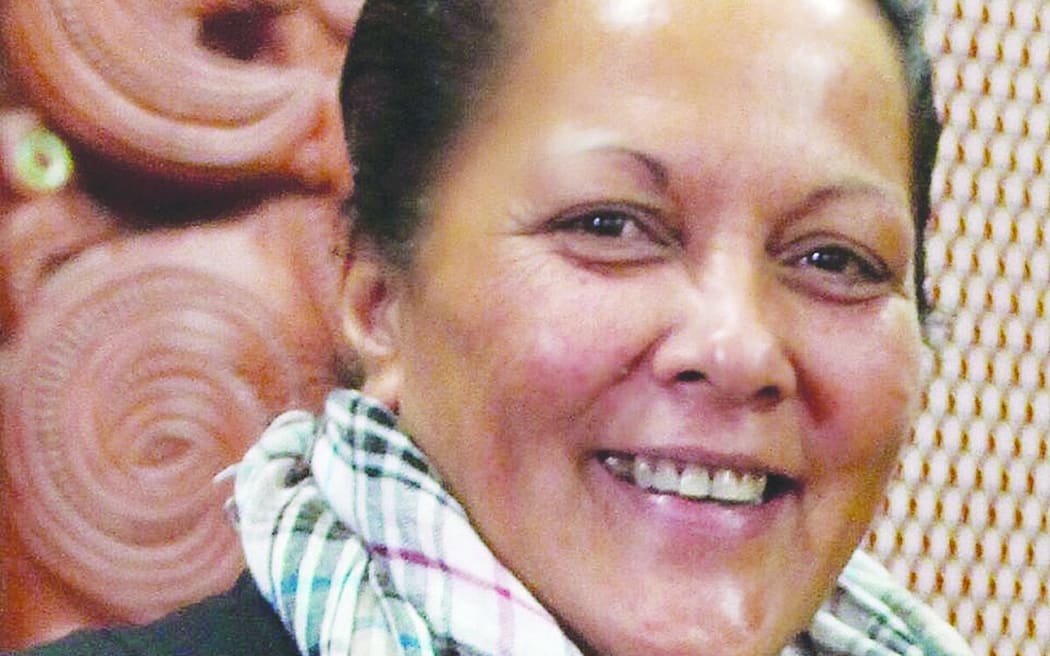
Tina Olsen-Ratana is one of the beneficial owners of land blocks at Tokomaru Bay, and is on a mission to have legislation changed. Photo: Supplied /Local Democracy Reporting
In a letter written to Minister for Māori Development Willie Jackson on 23 February, the lawyers detailed the situation and requested a meeting with Jackson on behalf of Olsen-Ratana.
"Ms Olsen-Ratana and the owners continue to suffer from the inability to develop and utilise their lands for the benefit of their whānau, hapū and iwi as a consequence of these perpetual leases and the suite of legislation regarding Māori Reserved land," the letter reads.
"We respectfully request a meeting with you."
They are still waiting for a response.
In July 2021, Te Tumu Paeroa, the office of the Māori Trustee, issued an owners' report for the 390 beneficial owners of Tuatini Township Blocks.
A 1011 square metre property containing a 1910 villa with attached garage and pool, along with a shed and possible former shop has been leased by N and L Truman since 1970. It fetches an annual rent of $3250.
A 5059 square metre property on the eastern side of Waitangi Street has been leased by the Trumans since 1968. Its current annual rent is $3500.
A third block, also leased by the Trumans, is a 1012 square metre property, home to the Blue Marlin motel. The Trumans commenced their lease on this property in 1972 and pay annual rent of $3750.
At the north-western corner of Waitangi St and Mangahauini St, a 2378 square metre property is home to a recently renovated cafe and three-bedroom house, leased at $5500 a year.
Another 1593 square metre section containing buildings owned by the lessee is leased at $2600 a year.
Four other sections are not leased.
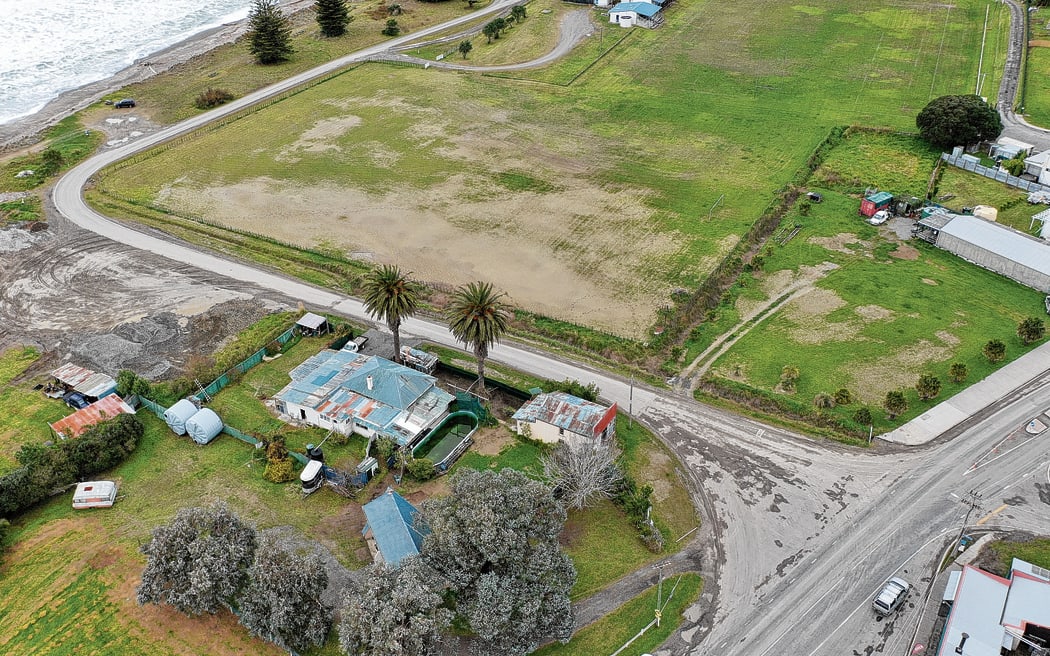
Sections of land in Tokomaru Bay, including the pictured house with pool and a patch adjacent to the large field across the road, are held under perpetual lease. Photo:
A financial summary provided by Te Tumu Paeroa shows the properties brought in income of $14,872 for the financial year ended March 2020.
Less expenditure of $7668 ,which includes the Māori Trustee's annual fee, commission charged on rental income and distribution administration fee, $5943 was left over.
Distributed among the 390 owners, Olsen-Ratana wasn't far off when she said she didn't get a cent.
But the main issue is the lack of control Olsen-Ratana and the other beneficiaries have over their assets.
Before the township was established for the benefit of settlers under the 1895 act, Māori collectively owned and lived off the land.
Fields were owned by everybody, and economic activity was run collectively, Naden said.
With the introduction of the perpetual leases, they have been stripped of control.
Outside a large beachfront property in the small town, a sign has been nailed to a fence reading "end of a 50-year era".
The leaseholder is parting ways with the property, and real estate agency Bayleys is looking for someone to take over.
"Just consider what a landholding of this size would sell for on today's open market, then ask the question, 'Why is the sale price so low?'," the listing reads.
The answer is legislation that dates back 100 years.
If Olsen-Ratana and the other beneficial owners want to claim the land back for their own purposes, they have the first right of refusal.
But they'll also have to stump up the $599,000 asking price, which will go to current lessees N and L Truman who have held the title since 1968.
Olsen-Ratana says it is upsetting, and laments the situation she and the other owners find themselves in.
"Our people are living in shacks. They don't have anywhere to go, and their land is locked. They can't even access it to put a tent on.
"How can we have land, and be homeless?"
Local Democracy Reporting is Public Interest Journalism funded through NZ On Air


